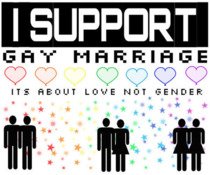 Shopping at a bulk retailer like Costco or BJ’s is a great way to control costs and embrace thrift, right? Well, sometimes, but not always.
Shopping at a bulk retailer like Costco or BJ’s is a great way to control costs and embrace thrift, right? Well, sometimes, but not always.When we think of compulsive shopping and running up the credit card bill we tend to think of upscale department stores, a closet full of clothes with the tags still on them, expensive electronics and other non-necessity items. We don’t think of a cavernous warehouse and a shopping cart filled with two-gallon containers of mayonnaise.
Certainly, there are bargains to be found at bulk stores and buying clubs, but not every 20-lb bag of chicken wings or 40-pack of tube socks is a deal. Dr. Miriam Tatzel, a social psychologist and professor at Empire State College who is an expert in consumer psychology, says that bargain shopping can lead to impulse spending because, “There’s a perception of value.”
Dr. Tatzel says shoppers can walk into Costco or Sam’s Club with an artificial sense of security. “It’s defined as something that’s going to save you money, so you use less critical judgment,” she says. The good doctor offered the following advice to make sure your membership card is working for you, not the other way around.
Make a List
“The paradox of bargain hunting is that you wind up with things you don’t need,” says Tatzel. “You have to begin to think, ‘I don’t really need that.’” She recommends heading to the store with a list to help give you focus.
Bring a Friend
If you shop with someone else you’ll be less likely to overspend. Tatzel explained that part of overbuying can be a reward to oneself or thinking, “I deserve this.” When you shop with someone else you tend to concentrate more on the business of shopping and less of the emotion. Also, you can arrange in advance with your shopping buddy to critique one another’s carts, and help eliminate extraneous items. “Bring someone along to help put the brakes on,” says Tatzel.
Be a Price Maven – or Find One
The only thing better than a shopping buddy is a shopping buddy who is also a price maven. You know, that friend who knows the price of every item at every store in town, plus four or five online spots. As Dr. Tatzel pointed out, when you’re shopping at a place like Sam’s Club it’s easy to assume that every item is a deal. If you know the price elsewhere, you won’t fall into this trap.
Certain areas of the store carry more risk than others, “Big displays and end of aisle displays are designed to appear as though they’re sales or deals,” says Tatzel.
Factor in Other Costs
Say you know the cost of a box of pasta at the local grocery store is the same as the nine-box pack you see on the shelf at Costco. Is the convenience of buying in bulk worth it, even if you’re paying the same in the end? That depends. If you live far from the store and g as is a major expense, then yes. If you live in a tiny apartment and having to store the pasta would take up space where you could store other food, or would just plain stress you out, then no. Also, in terms of groceries in particular, always ask yourself whether your family will use it all before it spoils. Dry goods with a long shelf life and freezable items are generally the best bets, unless you’re planning a large party or gathering.
as is a major expense, then yes. If you live in a tiny apartment and having to store the pasta would take up space where you could store other food, or would just plain stress you out, then no. Also, in terms of groceries in particular, always ask yourself whether your family will use it all before it spoils. Dry goods with a long shelf life and freezable items are generally the best bets, unless you’re planning a large party or gathering.
 as is a major expense, then yes. If you live in a tiny apartment and having to store the pasta would take up space where you could store other food, or would just plain stress you out, then no. Also, in terms of groceries in particular, always ask yourself whether your family will use it all before it spoils. Dry goods with a long shelf life and freezable items are generally the best bets, unless you’re planning a large party or gathering.
as is a major expense, then yes. If you live in a tiny apartment and having to store the pasta would take up space where you could store other food, or would just plain stress you out, then no. Also, in terms of groceries in particular, always ask yourself whether your family will use it all before it spoils. Dry goods with a long shelf life and freezable items are generally the best bets, unless you’re planning a large party or gathering.Review Before Buying
The checkout line is one of the most dangerous places in the store. “It’s called ‘point of purchase’ and they get you while you’re standing on line,” notes Tatzel. You know, those items you suddenly realize you need when you see them next to the checkout – batteries, gum, gift cards, gadgets. Instead, look through your cart and try to remove at least two items. “A gallon of ketchup may be great for a large family or a commune,” says Tatzel. “But do you really need it?”












No comments:
Post a Comment